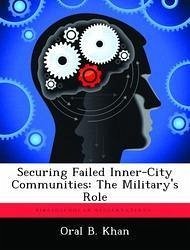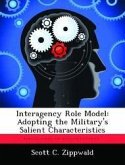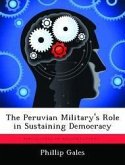This study examines the threat to internal security posed by violent gangs. This threat was found to be particularly acute in inner-city communities that have over time devolved to a status that the author classified as failed communities. Armed gangs had a very negative impact on the communities which housed them, resulting in a subculture regulated by gang rule. Civil authorities were found to be in breach of the social contract which required that, in return for the loyalty of citizens, they would provide that important social good--security--in accordance with the general will of the citizens. A literature survey identified indications of the failure of law enforcement agencies in the inner city. The security needs of inner-city residents were not accorded significant priority under the strategy of containment which was practiced. This made the police highly irrelevant for the security needs of residents caught up in the midst of the crisis. Analyzing the causes for the failures revealed weaknesses with the traditional assumptions behind national and internal security policy formulation. Correcting the faulty basic assumption of a uniformly stable internal environment was suggested as an important step for the recognition of the gravity of the inner-city dilemma. Military officers, as the professionals in the management of violence, were considered more competent for the application of force than peace officers equipped with military type capabilities. Accordingly the military was considered a feasible, acceptable, and suitable partner for a multiagency social and security intervention that had as its strategic purpose the retaking of control of failed communities from armed gangs and the restoration of the rule of law. The military was considered an unsuitable partner in a strategy seeking to contain the spread of violence and crime to new areas.
Hinweis: Dieser Artikel kann nur an eine deutsche Lieferadresse ausgeliefert werden.
Hinweis: Dieser Artikel kann nur an eine deutsche Lieferadresse ausgeliefert werden.








